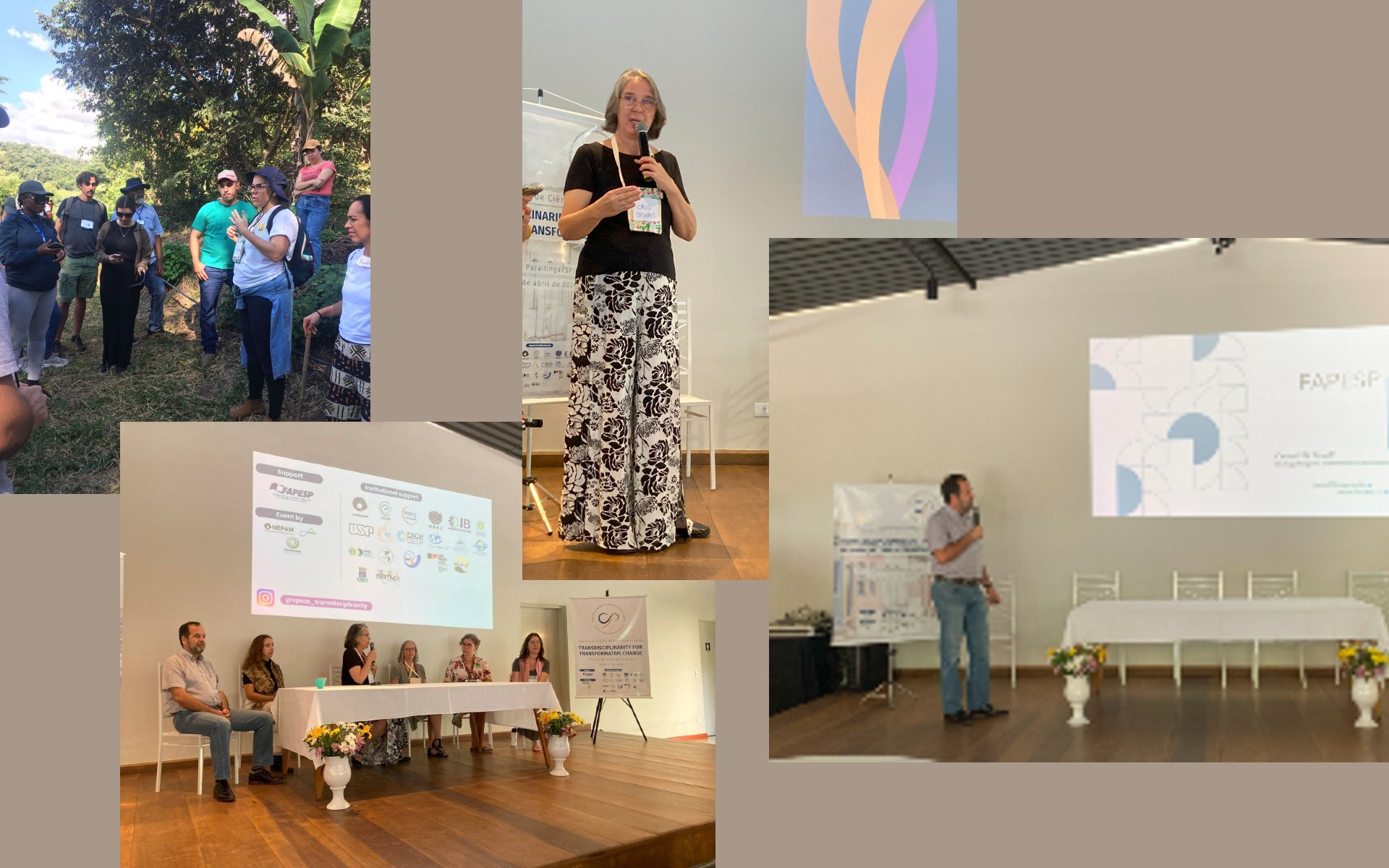

More than 80 students and academics from 30 countries attended the event on April 8-18 (photos: Biota Highlights)
Focus on transdisciplinarity aims to foster participation by all stakeholders in efforts to address global change. The subject was front and center at an event held in April 2024 at a historic town in São Paulo state.
Focus on transdisciplinarity aims to foster participation by all stakeholders in efforts to address global change. The subject was front and center at an event held in April 2024 at a historic town in São Paulo state.

More than 80 students and academics from 30 countries attended the event on April 8-18 (photos: Biota Highlights)
Agência FAPESP* – Environmental change poses complex challenges to science and society. An innovative approach to the issues involved entails abolishing the separation between disciplines and combining various kinds of knowledge in the search for solutions. This transdisciplinarity was the watchword for a São Paulo School of Advanced Science held on April 8-18 at São Luiz do Paraitinga, a historic town in São Paulo state’s Paraíba Valley (Brazil). The event was supported by FAPESP and attended by more than 80 people from 30 countries.
“Transdisciplinary research is designed in partnership with social actors, such as government, civil society, private enterprise or communities, for example,” said Cristiana Seixas, coordinator of the School. Seixas is a professor at the State University of Campinas and affiliated with its Center for Environmental Research (NEPAM-UNICAMP).
“The involvement of social actors is the backbone of this approach. If people are involved in the process from the word go, they’re more committed and the joint construction and implementation of solutions is much more likely to succeed.”
Transdisciplinary research has gathered momentum in recent years. The Intergovernmental Science-Policy Platform on Biodiversity and Ecosystem Services (IPBES), often referred to as the “IPCC of biodiversity”, is producing a global report on transformative change by experts from all over the world with the aim of developing novel approaches to find answers to complex questions.
This School was innovative insofar as it proposed to train 80 young scientists from all five continents, 42 of whom were from Brazil, and to approach environmental problems from a novel perspective. “The Schools of Advanced Science are supported by a line of funding for knowledge development and innovation. We’re always looking for ambitious, innovative, high-quality projects, new partnerships, and opportunities. These Schools are one of FAPESP’s key ways to make knowledge available to more people, especially young scientists,” said Carlos Graeff, FAPESP’s Coordinator of Strategic Programs.
For social scientist and geographer Laila Sandroni, it is important to strengthen collaborative efforts to produce innovative solutions to environmental problems. Sandroni is affiliated with the Inter American Institute for Global Change Research (IAI), a partner in organizing the event. The IAI’s mission is to coordinate scientific and economic research on the extent, causes and consequences of global change in the Americas.
During the two weeks of the School, activities took place at different locations in or near São Luiz do Paraitinga, including field trips to organizations, traditional communities, research institutions and cultural experiences, with the aim of encouraging engagement with local people and contributing to the local economy.
Transformative change
The conception of the School involved a combination of different pedagogical strategies to create an innovative format. Eight competencies for sustainability training were taught: systemic thinking, future thinking, consideration of multiple values, strategic thinking, interpersonal skills, intrapersonal skills, implementation skills, and integration skills.
The program was divided into four modules: understanding global environmental change and key concepts; learning methodological and analytical approaches for different areas; collaboration among disciplines and social actors to promote transformative changes at the science-policy interface; and addressing the challenges associated with these changes. Activities visited during field trips took place in the Paraíba Valley and locations on the north coast of São Paulo state.
“The School set out to promote transdisciplinary approaches to solving socioenvironmental problems. We believe research based on these approaches should be intentional and self-critical, and should involve processes that effectively engage local actors of all kinds,” said Cristina Adams, a professor at the University of São Paulo (USP) who helped organize the event. “Transformation means addressing socioenvironmental issues in a genuinely different way, with novel views and practices, in an effort to bring about systemic and structural change that can manage the multiple crises faced by humanity.”
Bryan Mariano, an attendee of the School, said working with transdisciplinarity and transformative change is a goal of his activities at the Indonesian Forest Foundation and the University of the Philippines Diliman, where he teaches. “Helping people acquire a deeper understanding of transdisciplinarity and its methodologies is one of the top priorities in the Philippines right now. We want students to learn about this from the start of their undergraduate studies,” he said. “I enrolled in this School to learn more about the subject so I can achieve these goals.”
Caren Queiroz Souza, who recently earned a PhD at the Federal University of Bahia (UFBA), said she hoped to obtain new ideas for her ongoing research. “I believe in transdisciplinarity as a way to address and solve the environmental problems we face. The School will help me participate in the most up-to-date discussions in this field,” she said.
For more about the event, visit: www.nepam.unicamp.br/spsas-transdisciplinarity/.
* With information from Érica Speglich and Paula Drummond (editors of FAPESP’s BIOTA Highlights newsletter).
Republish
The Agency FAPESP licenses news via Creative Commons (CC-BY-NC-ND) so that they can be republished free of charge and in a simple way by other digital or printed vehicles. Agência FAPESP must be credited as the source of the content being republished and the name of the reporter (if any) must be attributed. Using the HMTL button below allows compliance with these rules, detailed in Digital Republishing Policy FAPESP.





